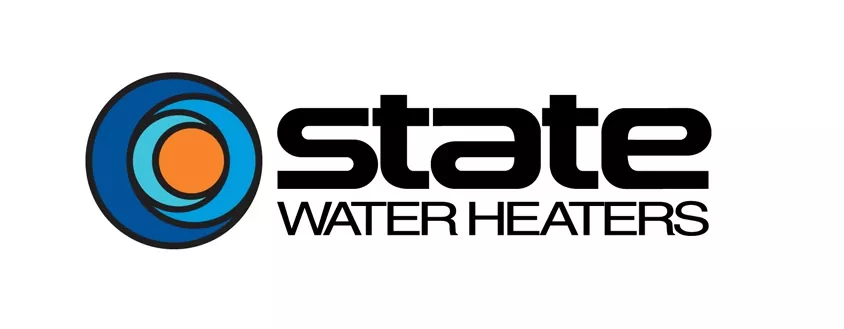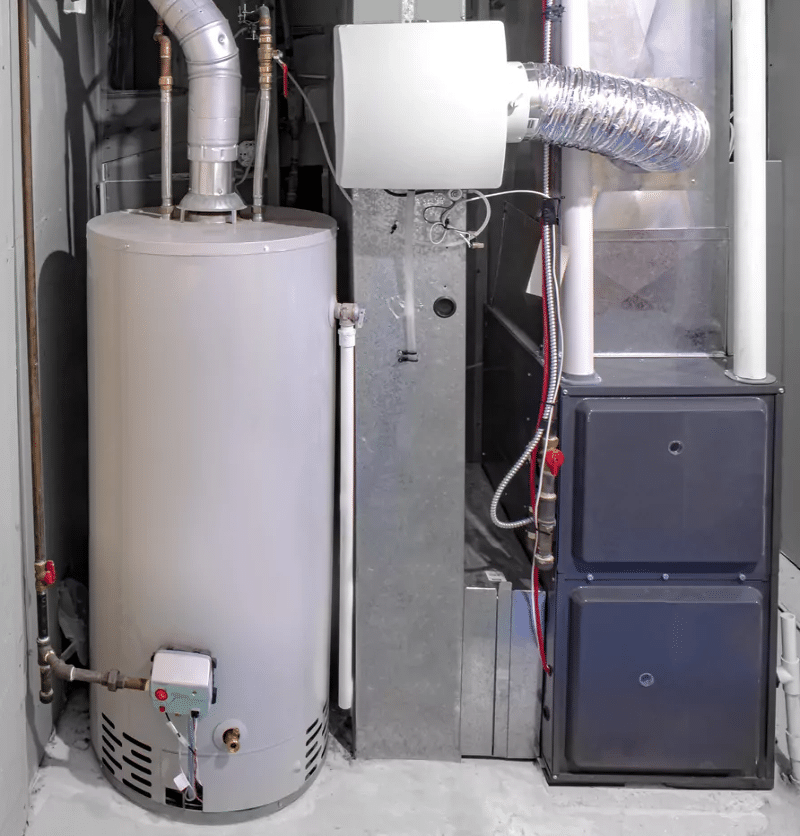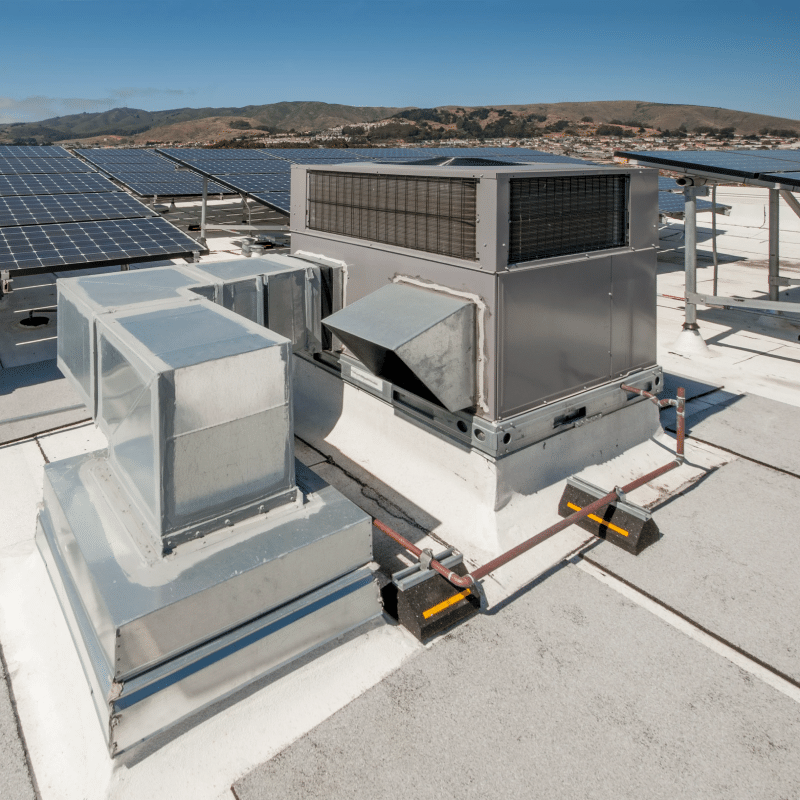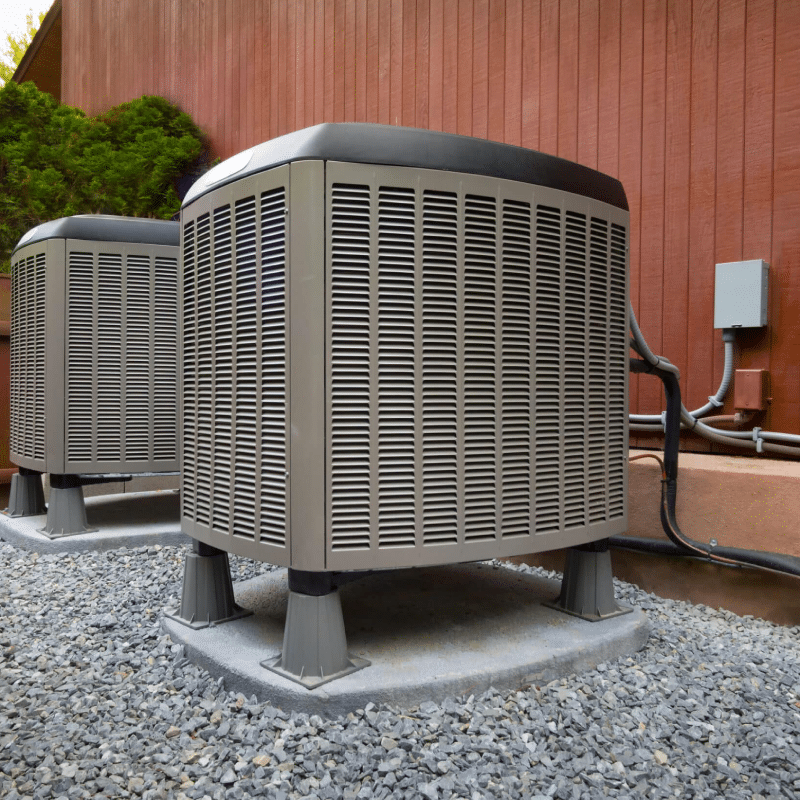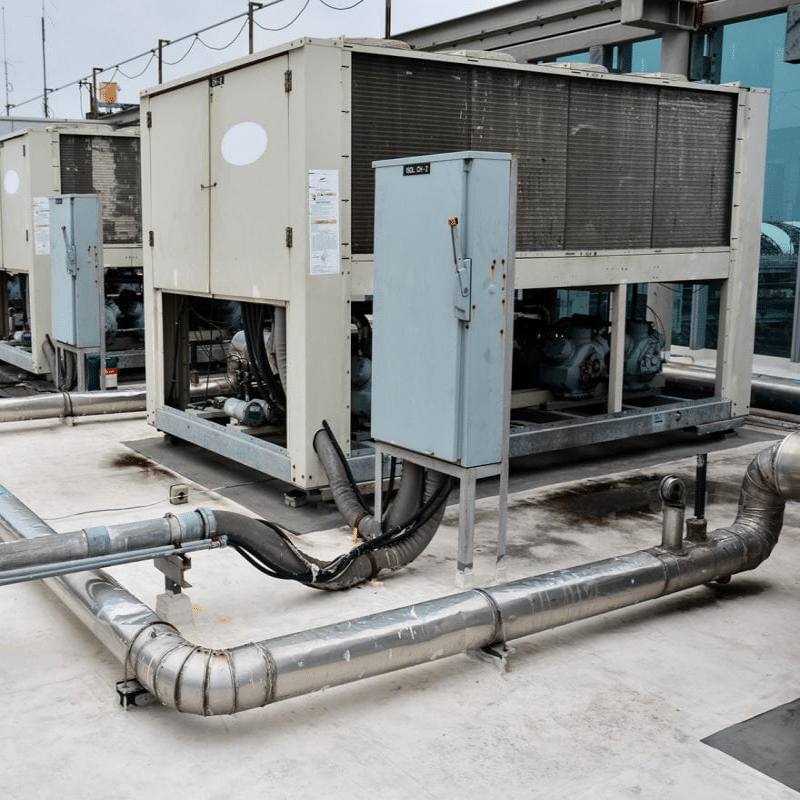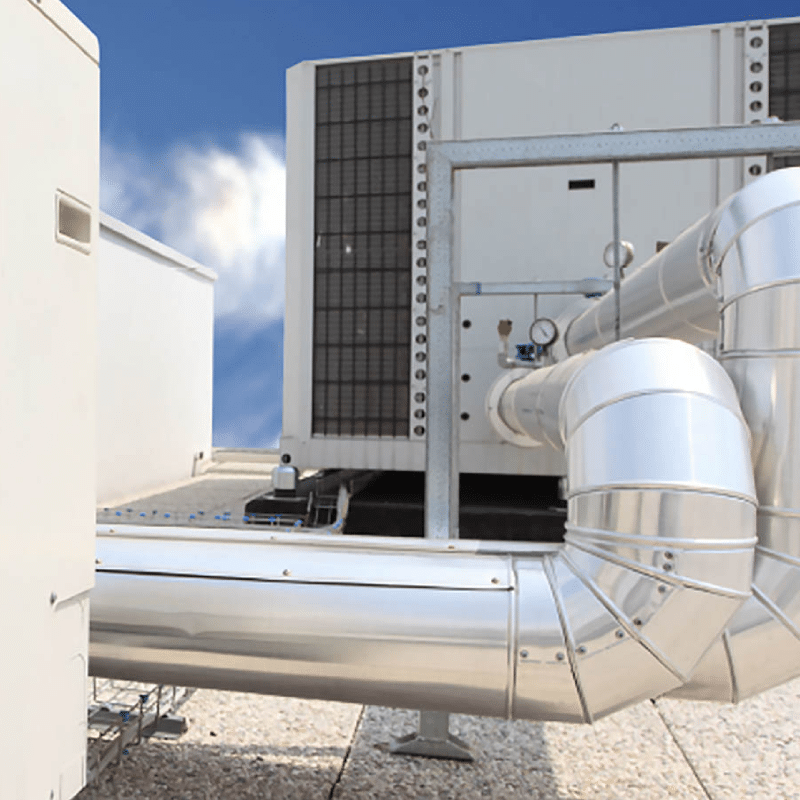Heating & Cooling System Repairs
Keep Your Heating & Cooling System In Good Repair. Enjoy The Perfect Temperature In Your Home 24-7, 365-Days A Year.
We Support All Leading HVAC Systems and Brands.
Why Rely on Custom Climates For All Your Heating & Cooling Needs?
- ROur Technicians are vetted and certified by the country's leading institutions and have the highest level of certification, training, and hands-on expertise.
- RWe believe our customers deserve great service at an honest, fair, and affordable price.
- ROur transparent, flat-rate pricing saves you money and ensures you are never surprised.
- RWe design, quote, and give you a proposal right there during our visit. You don't wait weeks for an email.
- ROur work comes with a Full 12-Month Warranty on all Parts and Labor.
Get a Free Estimate
How Customers Feel About Our Service




In today’s world, where we rely on indoor climate control for our daily life, understanding the dire need for heating & cooling system repairs becomes crucial.
HVAC systems discreetly keep our homes warm in the winter and cool in the sweltering summers. But over time, just like any piece of machinery, they can develop issues.
We must therefore arm ourselves with the knowledge necessary to diagnose and resolve these problems.
But before we begin, let’s read about how a well-functioning heating & cooling system is beneficial in all ways.
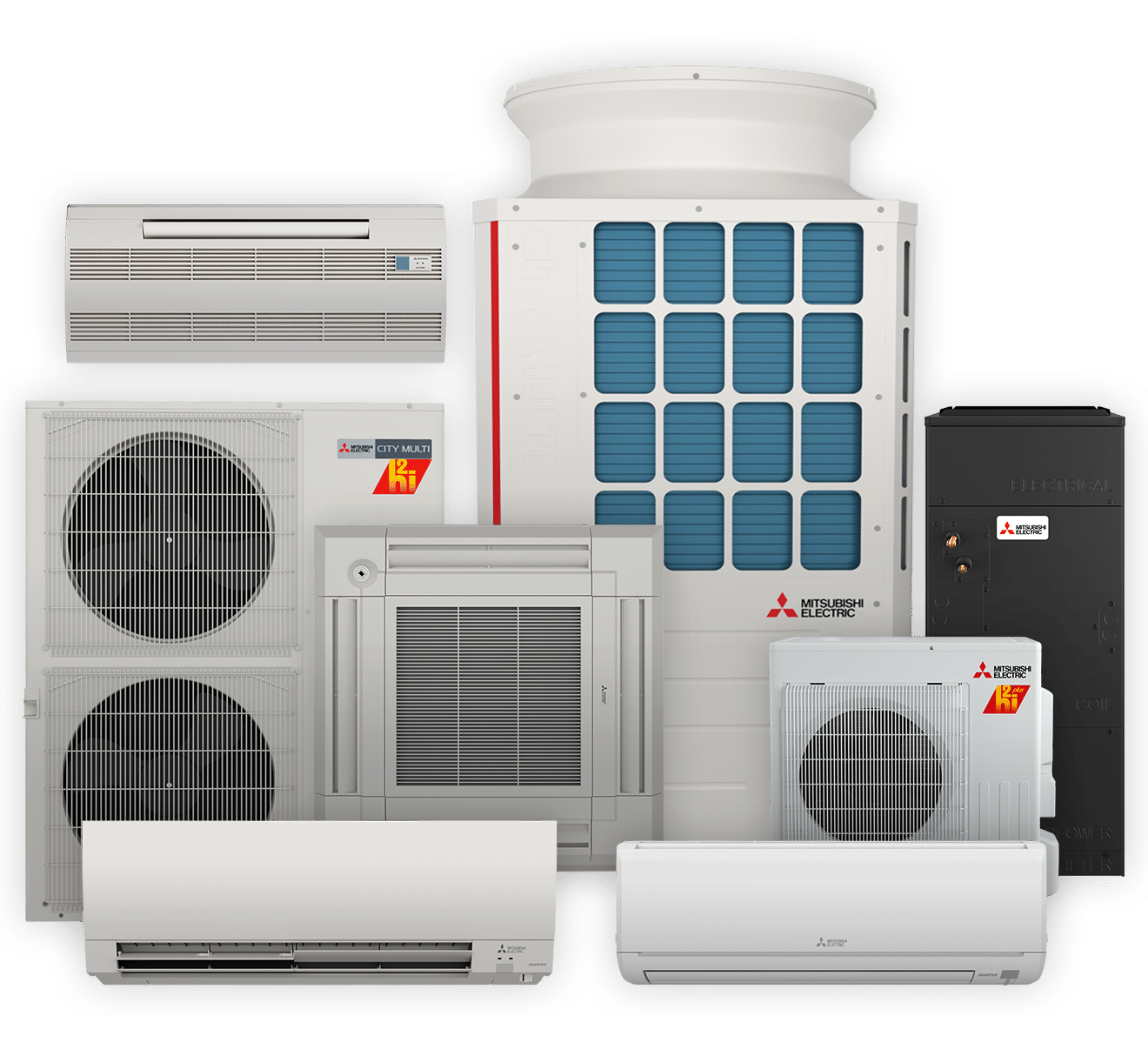
What does Custom Climates offer for Heating and Cooling System Repairs?
As a full service heating and cooling based in Southern New Hampshire, we are licensed and insured to repair all types of heating and cooling systems. Although we do carry certain brands that we offer to people for new installations, our expertise in all things heating and cooling is paramount, and we are well known in the community for offering quality service with knowledgeable technicians. In fact, our lead service technician Phil actually teaches HVAC classes at the Manchester School of Mechanical Trades.
Importance of a well-functioning heating & cooling system
Regulation of temperature
Energy efficiency
Enhanced lifespan of the equipment
Improvement of air quality
HVAC systems circulate and filter the air to eliminate pollutants, allergies, and dust. An effective system keeps dangerous particles from accumulating, improving indoor air quality and supporting better respiratory conditions.
Occupant health
The overall impact on the environment
What are the common issues requiring repairs?
Here are common issues requiring heating & cooling system repairs:
- Refrigerant leaks
- Faulty thermostat
- Clogged air filters
- Blower motor failure
- Ductwork issues
- Compressor problems
- Electrical component malfunctions
- Frozen evaporator coils
- Condensate drain blockages
- Ignition/pilot control issues
- Fan motor failures
- Capacitor problems
- Contactor damage
- Heat exchanger cracks
- Dirty or blocked condenser coils
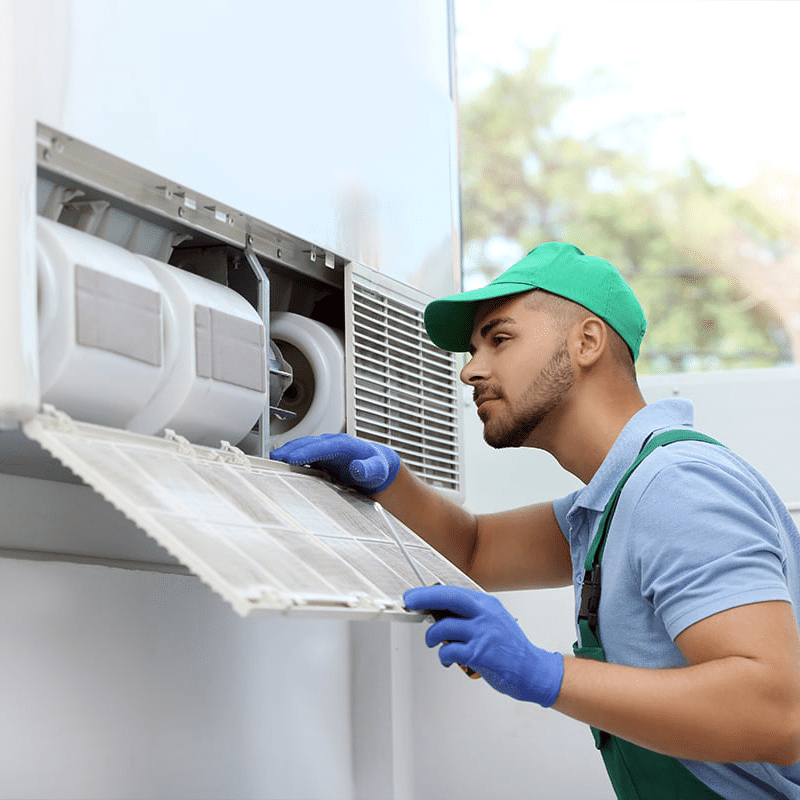
What are the signs of Heating & Cooling System Problems?
Signs of heating and cooling system problems can indicate various issues that may require attention or repair. Here are some common signs to look out for:
- Uneven temperature distribution: If some rooms are consistently warmer or cooler than others, it could indicate ductwork issues, clogged filters, or malfunctioning components.
- Weak airflow: Reduced airflow from the vents can result from a blocked air filter, ducts, or a failing blower motor.
- Strange noises: Unusual sounds like banging, rattling, or screeching could suggest loose or damaged components, worn-out belts, or motor issues.
- High humidity levels: A properly functioning cooling system should help control indoor humidity. If you notice excessive moisture, there might be an issue with the system or inadequate ventilation.
- Constant cycling: Frequent on-off cycling indicate problems with the thermostat, refrigerant leaks, or an oversized system.
- Foul odors: Persistent musty or burning smells might signify mold growth in the system or burning electrical components.
- Higher utility bills: A sudden increase in energy bills could be a sign of an inefficient system, leaks, or poor insulation.
- Short cycling: The system turning on and off too frequently may point to various issues, such as oversized equipment, clogged filters, or thermostat problems.
- Lack of maintenance: Neglected systems are more prone to breakdowns and inefficiency. Regular maintenance is essential to keep the system functioning optimally.
What should I know when considering repairing a system?
Like any mechanical system, our heating and cooling equipment has many moving parts and often these parts can get worn down over time and fail. It is important that we get our equipment maintained each year or as the manufacturer recommends.
As mechanical parts get worn and fail, they often can have a negative effect on other parts and pieces in the system as well. So it is important to address any issues or concerns in your system promptly. During a Custom Climates HVAC repair visit, we make sure to thoroughly inspect all parts of your heating and/or cooling system to determine if there are any other items that may be of concern in the near future. Any good technician or service company should perform the same. It is a requirement by ASHRAE standards to conduct a recommissioning and safety check prior to the completion of a service/repair visit. This recommissioning and safety check will be performed after replacing/repairing any parts in the system. It ensures that there is no other part in the system that could potentially fail or cause a safety issue after the technician leaves the home.
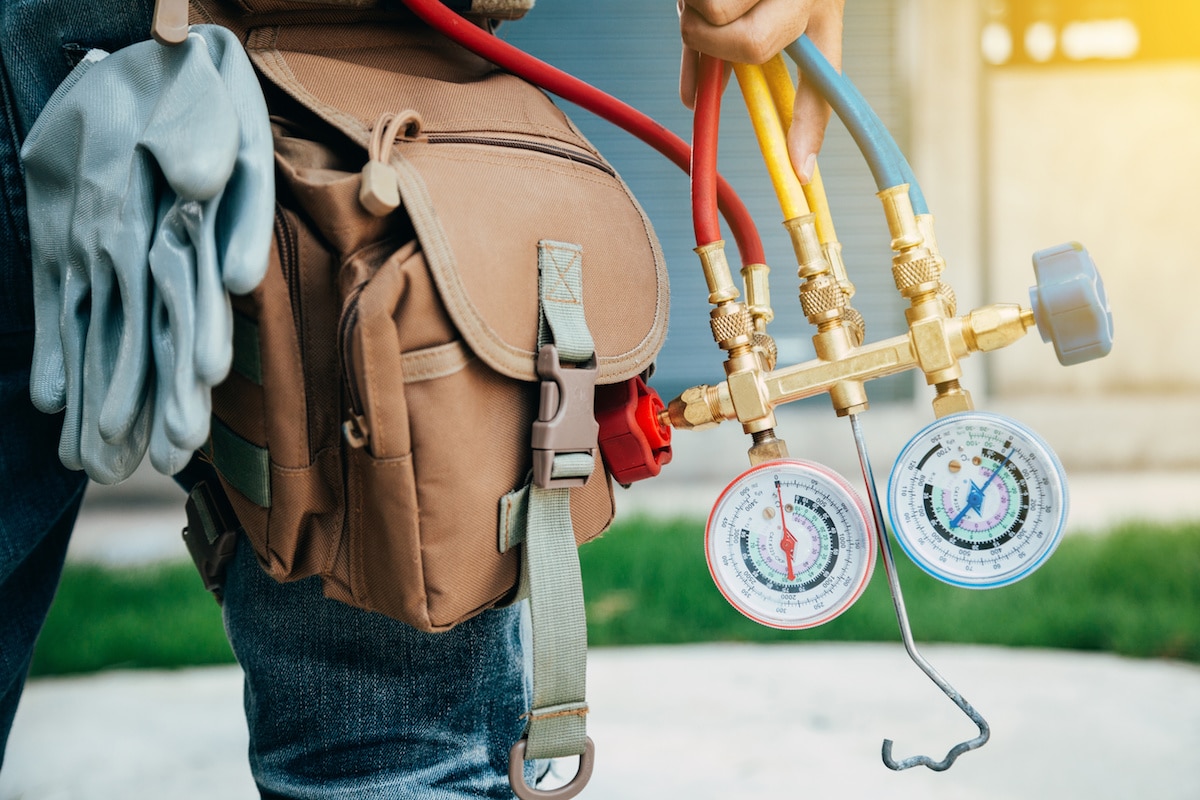
Get in Touch
Contact us to Schedule a Service appointment
For example, if the technician diagnoses that there is an issue with the gas valve and he replaces that part, the system may start right up and deliver heat again. However, if no recommissioning and safety check was performed, perhaps the technician would have missed a faulty vent pipe or flame rollout switch that could put everyone’s life in jeopardy were he to just get a payment for the repair and walk out the door.
These extra steps and precautions are one part of what makes the quality of service from Custom Climates the best you can receive in a New Hampshire HVAC company.
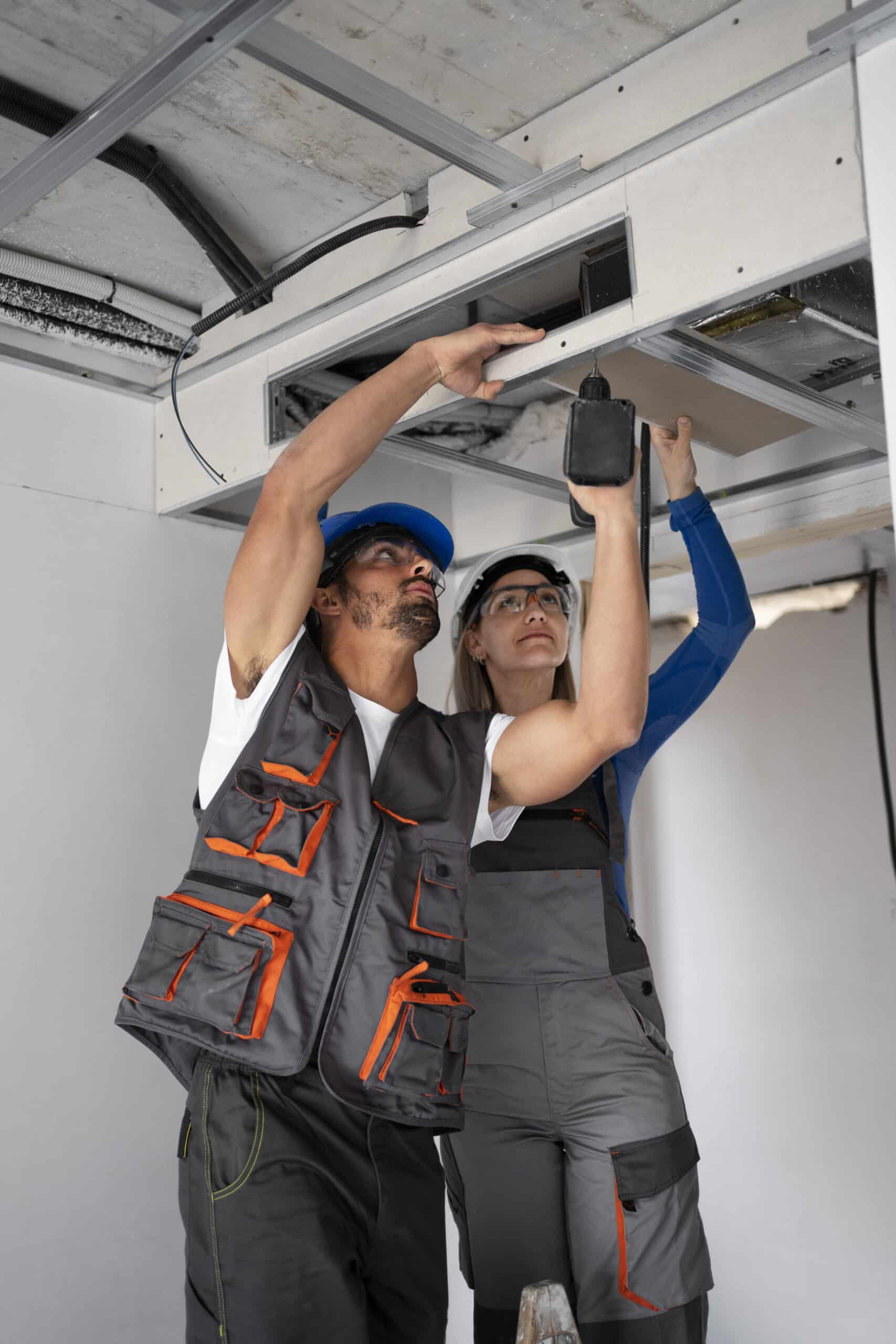
Should I repair or replace my equipment?
Our technicians have been through extensive training to be able to not only identify and repair failed equipment, but they have also been trained on how to keep the customer’s best interest in mind. One part of that training is being able to help a customer determine whether it is a better investment to repair or in some cases replace the equipment.
The lifespan of most HVAC equipment is between 13-17 years. Some equipment can certainly last longer than this depending on the brand, maintenance efforts, and design parameters for the home. If a customer of ours has a piece of equipment that is 11 years old and it has a major failure such as a blower motor and wheel, the repair could be 20% the cost of replacing the unit. If you repair it, it will still be an 11-year-old system. So in many cases the cost of the repair would actually be better spent on a new unit with better technology for better efficiencies. This investment of the repair cost plus the savings from efficiency gains often makes getting a new unit a much better decision in the long run. Of course, we never try to push our customers in one direction or another unless safety is an issue. We understand that every household has different circumstances, goals, and budgets. But we want to be sure to always offer the information, because a large part of what our customers pay for is our knowledge and experience, along with having the right tools and credentials.
What should be included in a routine maintenance checklist?
To maintain the best performance, energy economy, and safety of HVAC systems, a routine maintenance checklist for heating and cooling systems should include the following key components.
- Checking and replacing filters: To guarantee optimum airflow and interior air quality, regular inspection and replacing the air filters are needed.
- Thermostat Calibration: To maintain constant temperatures, checking the accuracy of the thermostat and calibrating is necessary.
- Ductwork Inspection: Examination of the ductwork for leaks, damage, or obstructions that could cause energy loss and decreased effectiveness.
- Lubrication: Lubrication of the system’s moving parts to reduce friction and prolong the life of the mechanical parts.
- Electrical component checks: Checking electrical connections and components for wear, corrosion, or damage to identify potential electrical problems.
- Condensate Drain Cleaning: Clearing the condensate drain to prevent clogs that could cause water damage or humidity problems.
Coil Cleaning: Cleaning both the evaporator and condenser coils to maintain efficiency and prevent frost or overheating issues. - Refrigerant Levels: Checking refrigerant levels and ensuring they are within the manufacturer’s recommended range.
- Blower Motor Inspection: Verifying the blower motor’s condition and function to ensure proper air circulation.
- Heat Exchanger Inspection (for heating systems): Inspecting heat exchangers for cracks or damage, as they can lead to carbon monoxide leaks.
- Safety Controls Testing: Testing safety controls, such as pressure switches and limit switches, to ensure proper system shutdown in emergencies.
- Fan Belt Inspection: Examining fan belts for wear and proper tension; replace them if needed to prevent breakdowns.
What are the signs that my system needs repairing?
The obvious answer is when it no longer provides heating or cooling for you, but there are other things to consider as well. Listen to the way the system runs. Is it louder than it used to be? Do you hear clicking, banging, whirring, or other strange noises you never noticed before? Have your utility bills seemed to be climbing or much higher than what you consider normal? HVAC systems often do fail and stop working and it is obvious. But there are often signs leading up to that failure that you can catch before it is a failure. If the equipment fails suddenly, the odds that it will be during a convenient time is highly unlikely. You are likely to notice a failure when you are home. So that in itself could limit you to outside of normal business hours if you work outside of your home during the day. It is also likely that extreme weather can also impact when your system fails. So on the coldest day of the year, in the middle of the night when your system is running the most, it could be a very likely time for a system to fail. Being in that position puts you in an emergency situation. The problem with emergencies is that it limits your decision making because you can’t do adequate research to consider replacement options, nor can you wait and schedule out the repair for when it is convenient for your service company.
We highly recommend paying some attention to your heating or cooling system to try to prevent those emergencies. Addressing issues beforehand can prevent an expensive repair of parts that may not have failed had they been found earlier. If you suspect there may be something wrong with your equipment.
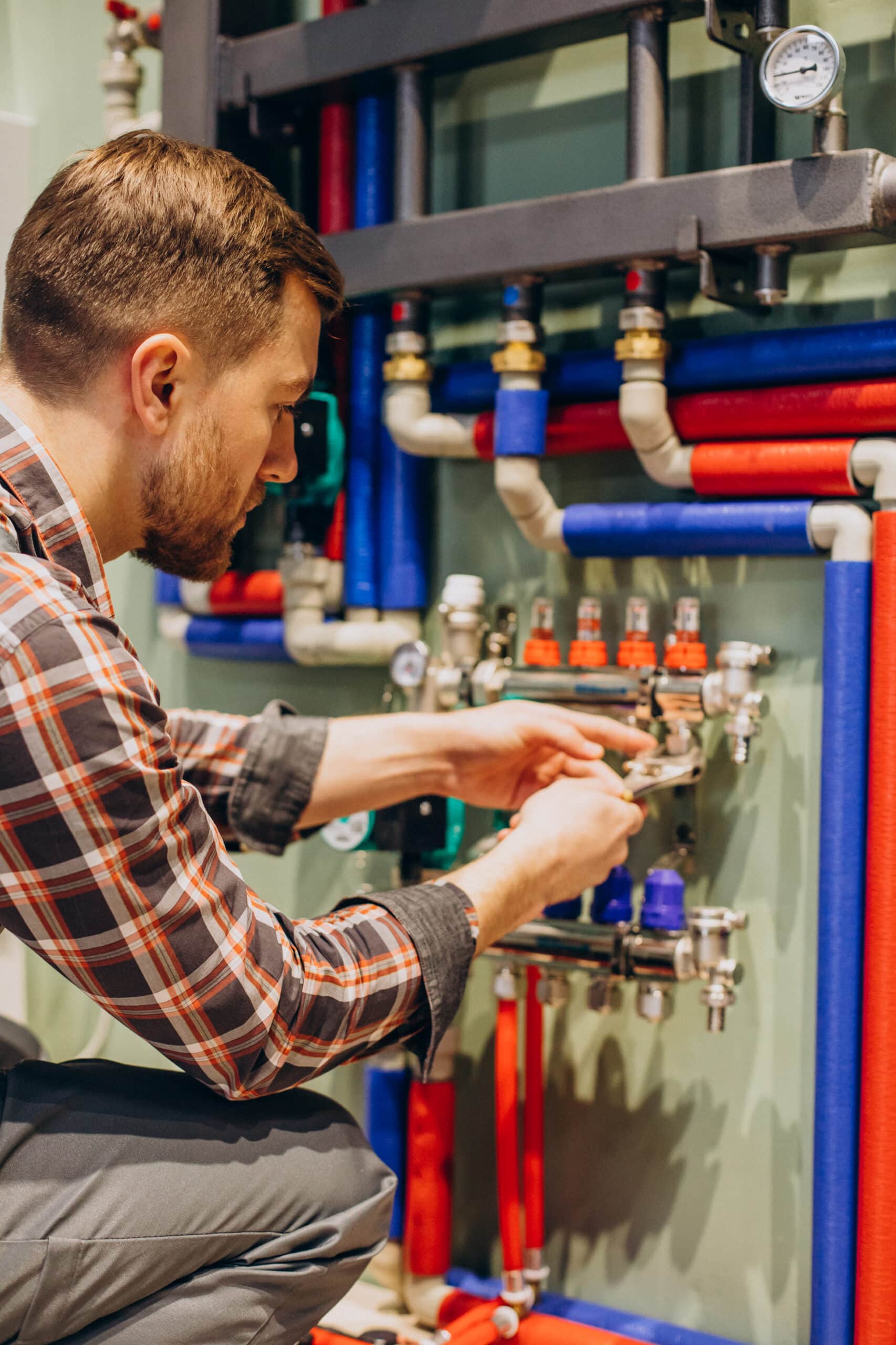
Get in Touch
Contact us to set up a visit to see which Heating System would be best for you, your family, and your home.
Are You Interested?
We offer a variety of HVAC products


